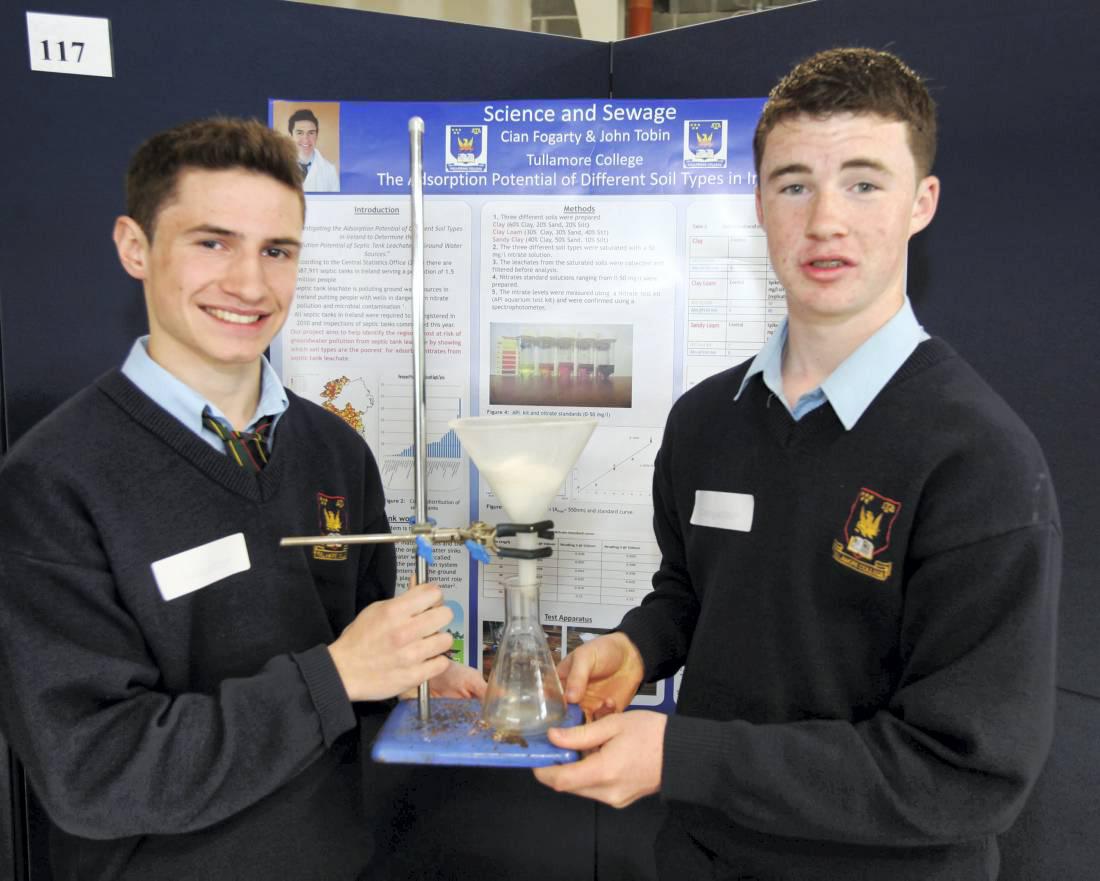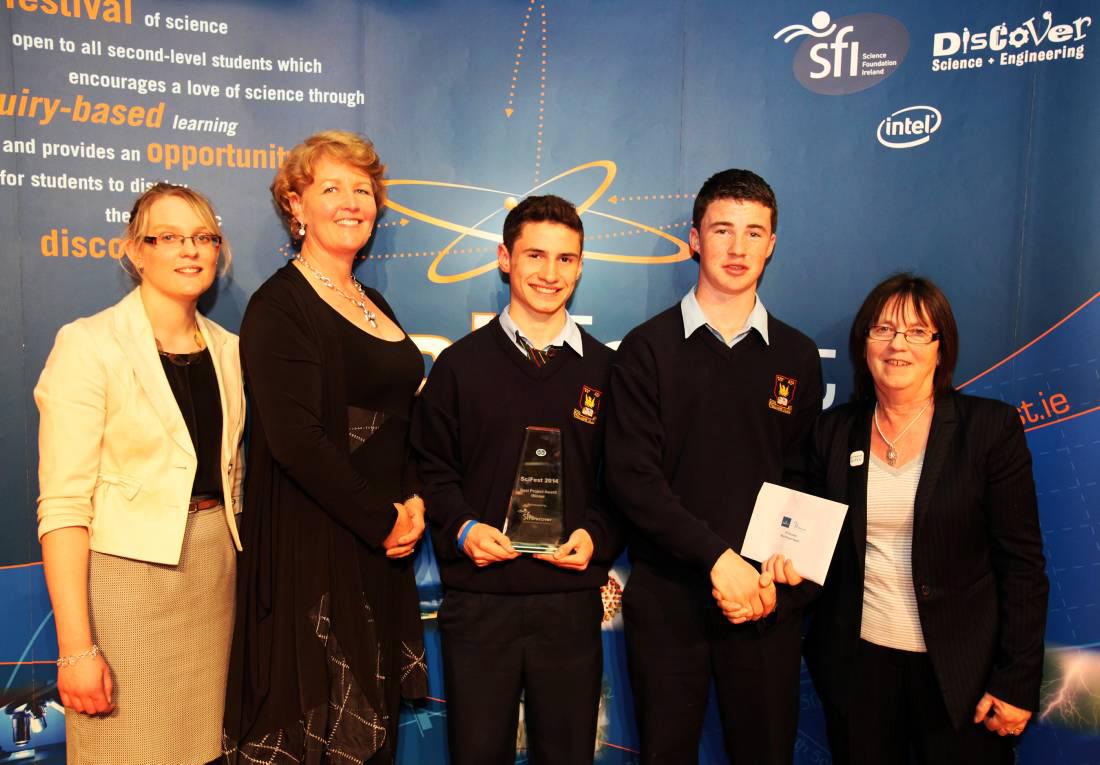Three of the 15 teams that were whittled down from 6,000 students to make it to the national final of SciFest, were teams with agricultural projects. These teams competed in the national final recently, which was held in the Marino Institute of Education in Dublin.
Although none of the ag projects came away as the overall winner (the title went to Christopher Carragher from Our Lady’s SecondarySchool in Castleblaney, Co Monaghan), a new award, the Boston Scientific Award, was given to one of the ag projects – Agriscan – and all the finalists received an Excellence in STEM Award on the day.
Agriscan is designed to replace the Department of Agriculture’s Blue Card, which farmers use to record the details of each animal in their herd. It was developed by Oisín Keniry, Edmond O’Halloran and Bobby McCarthy, who are sixth year students in Pobalscoil na Tríonóide, in Youghal, Co Cork.
Mark Roche and Cormac Ward, fifth-year students from Avondale Community College in Rathdrum, Co Wicklow, were also finalists, having developed a calf tagging product.
Mark and Cormac addressed problems surrounding calf tagging, specifically the fact that all new calves are now required to have a tissue sample removed and tested for Bovine Viral Diarrhoea (BVD).
Farmers are required to send the tissue sample to a laboratory to be tested, but a significant number of these tests prove inconclusive because the samples have not been stored at an appropriate temperature.
To tackle this problem, Mark and Cormac designed a stainless steel portable fridge that can store samples for up to four hours below 4°C.
Septic tanks were the subject matter for the third ag project at SciFest.
Cian Fogarty and John Tobin, fifth year students from Tullamore College, set out to investigate which types of soil were best and worst at absorbing the run-off from septic tanks. They examined clay, sandy loam and clay loam (being the most common local soil types) and found that clay performed best in their tests to date.
The aim of SciFest, which is an all-island initiative, is to encourage a love of science, technology and maths through active, collaborative, inquiry-based learning, and to provide a forum for students at local, regional and national level, to present and display their scientific investigations.
Last year, the overall SciFest winner went on to win the BT Young Scientist Exhibition and both he and SciFest’s second place winner took top prizes at the Intel International Science and Engineering Fair held in Los Angeles, in May of this year.








SHARING OPTIONS